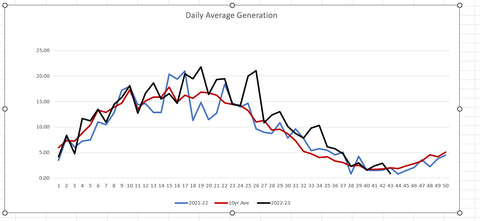Nutcracker
New Member
- Messages
- 2
Hi,
I’m supplying water and electricity to my neighbours field. The field is about 10 acres and is used for cattle and silage. The electricity is for the fencer and the water is for a few troughs. This started out as a temporary arrangement about 5 years ago as he said he would be getting his own well. He has given me an occasional small payment but I doubt it covers the cost.
I feel he should be paying more as the field is useless without water/electricity. I would also like the payment and arrangement to be a bit more regular as it’s a very loose arrangement currently.
Would anyone suggest a ballpark figure of what would normally be paid per year for an arrangement like this?
Thanks for your help.
I’m supplying water and electricity to my neighbours field. The field is about 10 acres and is used for cattle and silage. The electricity is for the fencer and the water is for a few troughs. This started out as a temporary arrangement about 5 years ago as he said he would be getting his own well. He has given me an occasional small payment but I doubt it covers the cost.
I feel he should be paying more as the field is useless without water/electricity. I would also like the payment and arrangement to be a bit more regular as it’s a very loose arrangement currently.
Would anyone suggest a ballpark figure of what would normally be paid per year for an arrangement like this?
Thanks for your help.
